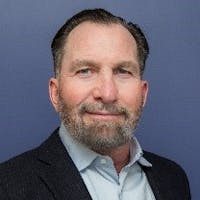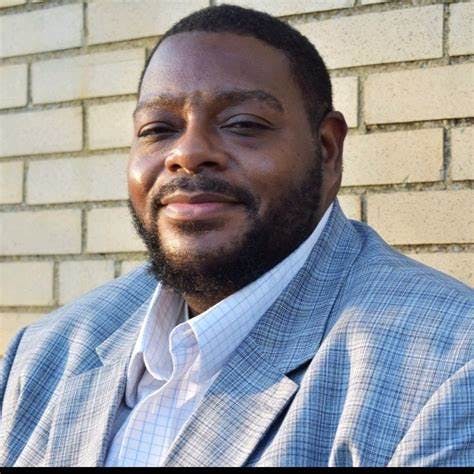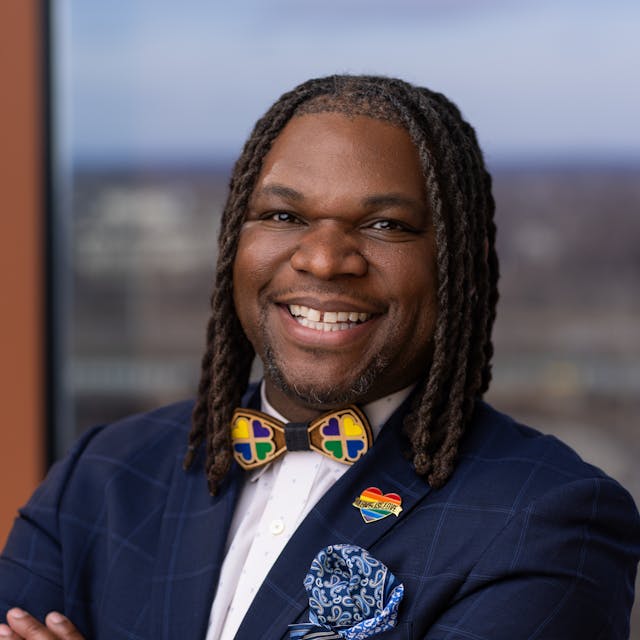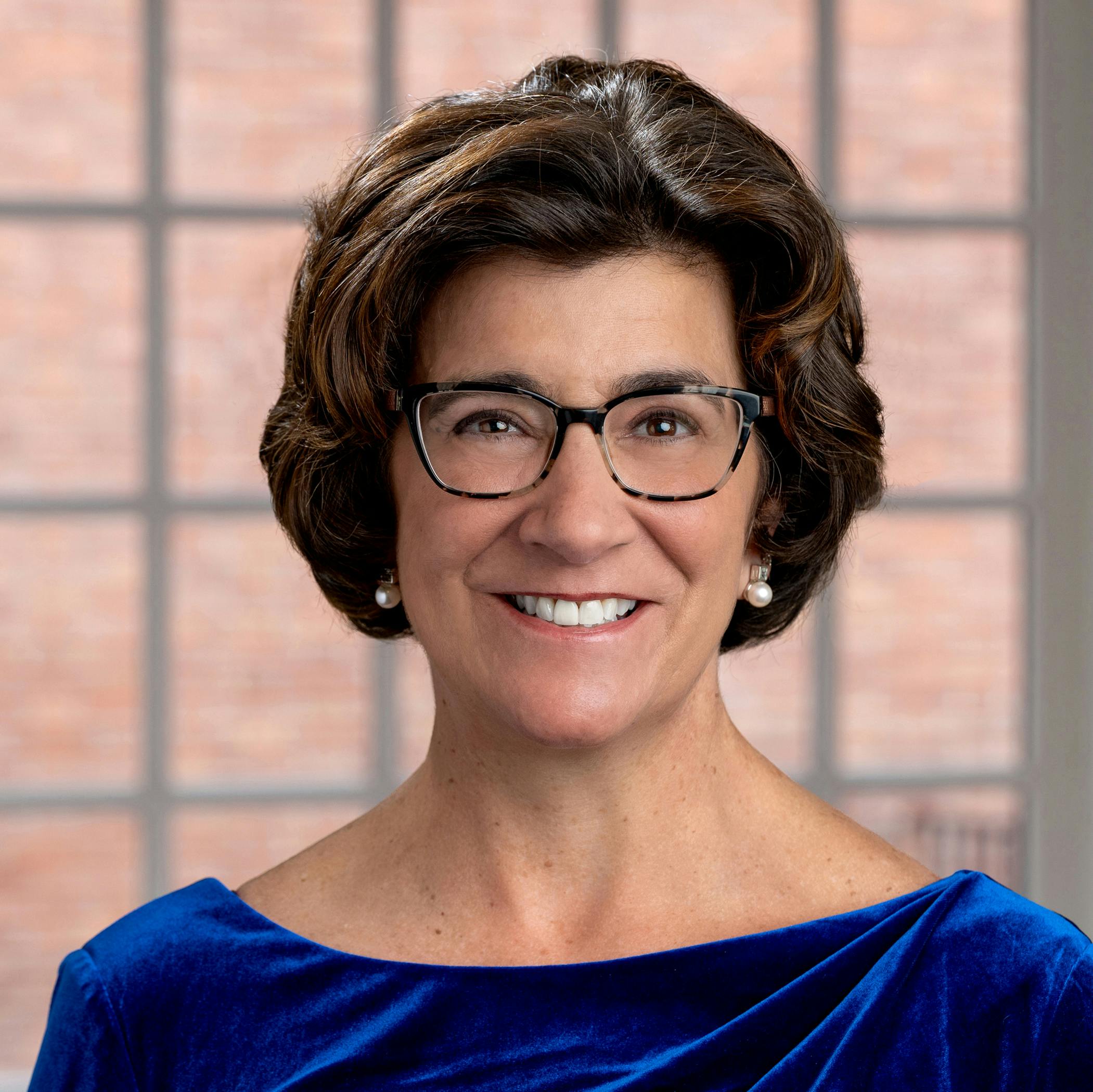Answering The Call
17 min read

Engaging People of Call to Service – A New Evangelism

by Paul L. Ramsey
Director, Church Relations and Philanthropy, PBUCC
The Rev. Dr. Paul L. Ramsey, Director, Church Relations and Philanthropy, invites Jamar Doyle, President and CEO of the Council for Health and Human Service Ministries (CHHSM), the Rev. Darrell L. Goodwin, Executive Conference Minister of the Southern New England Conference, and the Rev. Dr. Sarah B. Drummond, Founding Dean of Andover Newton Seminary and Professor in the Practice of Ministerial Leadership at Yale Divinity School, to explore solutions to engage intergenerational ministers into service via succession planning, leadership development, increased investments in staff wellbeing, and innovative approaches for providing just and equitable compensation—including health benefits and retirement plans.
Evolving Needs and Challenges in Ministry
Paul: In your experiences, what are the greatest challenges facing churches in sustaining ministry today? How have the expectations and responsibilities of ministry changed in recent years?
In my experience, one of the greatest challenges churches face today is adapting to a rapidly changing world. The expectations placed on ministers have grown exponentially; no longer are they just preachers and pastoral caregivers, they are expected to be organizational leaders, community advocates, tech-savvy communicators, and cultural interpreters. This widening scope, often without the corresponding support or compensation, has contributed to burnout and attrition. And this reality is not limited to church leaders. At CHHSM, the leaders of our outreach ministries are similarly navigating expanding roles and deepening community needs—and doing so often with flat or decreasing resources.
—Jamar Doyle
One of the greatest challenges is that the traditional model of church is no longer the default spiritual home for many people. The expectation that folks will come simply because a church exists is gone. This forces churches to be more intentional and creative about their presence in the community. Additionally, clergy are now expected to not only be spiritual leaders but also social media strategists, fundraisers, mental health responders, and non-profit leaders.
—the Rev. Darrell L. Goodwin
I believe that expectations are rising that ministers know how to lead communities, not just by providing theological perspectives but through sustaining institutions. They can learn leadership on the job, but in today’s diverse and quickly changing culture, they often find that learning outpaced.
—the Rev. Dr. Sarah B. Drummond
Recruitment and Retention
Paul: What do you see as the key barriers to recruiting and retaining ministers and essential lay leaders in the UCC?
A number of barriers stand in the way: financial insecurity, a lack of visible and diverse role models, and unclear pathways into leadership, especially for younger leaders, BIPOC individuals, and LGBTQ+ persons.
Many simply don’t see themselves reflected enough in current leadership structures or feel that their full selves are welcome in our spaces. However, when leaders are mentored, affirmed, and supported holistically, they are more likely to stay and thrive in ministry roles. At CHHSM, we’re addressing this by investing in leadership development that is spiritually grounded and justice-centered. Our Nollau Leadership Institute provides tools for spiritual discernment, vocational clarity, and community building, all of which are crucial for long-term sustainability.
—Jamar Doyle
A major barrier is the disconnect between the spiritual calling and the practical realities of the role of pastor and teacher. Many are drawn to ministry by a desire to serve, but leave because of burnout, financial instability, or lack of community support. The UCC’s emphasis on local autonomy is beautiful, but it also creates inconsistency in how leaders are nurtured, compensated, and celebrated across our church.
—the Rev. Darrell L. Goodwin
My colleagues, the Rev. Dr. Mary Luti and the Rev. Dan Smith, used to say when they were in ministry at First Church in Cambridge: “People have time; they don’t have time to waste.” Those who are called to ministry, ordained or lay, must feed their calling with meaningful work. Futile efforts are depressing and draining for everyone, but especially so for those whom God has called to serve others and to cause God’s love to grow.
—the Rev. Dr. Sarah B. Drummond
Paul: What are some successful strategies you’ve seen for engaging younger generations in ministry?
For many young people today, service in the community is just as important as Sunday service; it is a central expression of their faith and ministry. They seek opportunities to live out their faith and values in tangible ways, such as through volunteer placements, missional trips, and leadership experiences with CHHSM’s faith-based human service agencies. They don’t see ministry as something that only happens within church walls, but as a broader vocation of care, advocacy, and healing in the world. The more we are able to connect our faith to action in our communities, the more we will connect with younger generations.
—Jamar Doyle
Younger generations crave authenticity and purpose. When churches engage them in justice work, creative expression, and meaningful relationships—not just church maintenance—they show up. I’ve seen success when we create ministry spaces that are co-created with young people, not built for them but with them. Leadership development, mentorship, and providing young leaders actual authority—not just tokenizing them.
—the Rev. Darrell L. Goodwin
Younger people called to ministry do not carry around the burden of the way things were in the “good old days,” which are both long-gone and which were by no means good for everyone! They seek emotional engagement with their faith. Because of that hunger, they respond particularly well to opportunities to live out their faith through caring for the vulnerable and through expressing love for God through the arts. In our seminary education, we try to help them understand service to the church as an act of love, and once they meet the people they will care for, this love comes to life.
—the Rev. Dr. Sarah B. Drummond
Compensation
Paul: How can churches better advocate for just and equitable compensation for their ministers and lay staff?
We need a cultural shift: we must stop viewing ministry as a sacrificial calling where the reward is spiritual, and the labor is unpaid or underpaid. Churches must learn to budget from a place of value, not scarcity. Compensation should reflect the cost of living and the complexity of the work. Churches should lean into partnerships with Conferences for guidance on fair compensation practices and accountability.
—the Rev. Darrell L. Goodwin
Ministry as a profession is both entirely like, and entirely unlike, work in other fields. The mantra that guides the best practice for ministry compensation is this: “What does it cost to live in this area, and how can we ensure that our pastor and pastoral staff are able to live here and not feel like they’ve been asked to do something impossible?” In the congregational traditions, ministers are understood to be human beings who’ve been delegated special ecclesiastical authority. If their congregation doesn’t respect their human needs, the relationship frays.
—the Rev. Dr. Sarah B. Drummond
Paul: What innovative models or approaches have you seen for financially sustaining ministry roles?
I’ve seen promising innovation in shared ministry models, bi-vocational ministry paired with supportive benefits, and the repurposing of church property to generate mission-aligned income, such as affordable housing developments or co-located community services. These creative approaches help congregations respond faithfully to economic pressures while broadening their impact. Many of CHHSM’s member ministries collaborate with local churches, community partners, and with each other to pool resources and stretch limited funding.
—Jamar Doyle
Some congregations are moving toward shared ministry models, co-pastoring arrangements, and bi-vocational leadership—not as a fallback but as a faithful choice. Others are monetizing underutilized property or forming community-based partnerships that bring in funding and deepen impact. Innovation also means tapping into grants, philanthropy, and entrepreneurial ministry models that align mission with financial sustainability.
—the Rev. Darrell L. Goodwin
Call it stewardship, call it tithing, but any way you slice it, philanthropy is the backbone of clergy compensation. Clergy must take that reality seriously and see understanding, talking about, and providing theological perspective on philanthropy as part of their jobs. Tremendous resources are available to leaders whose compensation relies on philanthropy, and ministers accessing such resources would be, but should not have to be, an innovation.
—the Rev. Dr. Sarah B. Drummond
Paul: What wellness resources do you believe are most vital for ministers and how can churches support their access to them?
Ministers need more than permission to care for themselves; they need a culture that prioritizes wellness as foundational to effective leadership. Sabbaticals, therapy, peer support groups, spiritual direction, and time for rest and renewal are not luxuries—they are necessities. Churches and outreach ministries must build this into their structures and expectations because ministry to others begins with tending to one’s own spirit and wellbeing. Through the Nollau Leadership Institute, we encourage leaders to integrate self-care into their vocational rhythms, not as an afterthought but as an act of faithful stewardship.
—Jamar Doyle
Sabbath practices, mental health support, and communities of practice groups are vital. Churches can support wellness by making it part of the culture ensuring time off is respected, therapy is normalized, and clergy have safe spaces to be vulnerable. Regular check-ins with clergy, not for performance review but for care, go a long way.
—the Rev. Darrell L. Goodwin
Onboarding and Succession Planning
Paul: How important is succession planning in local churches and wider church settings, and what are the key components of doing it well?
Succession planning is essential for continuity and for cultivating a future that reflects our deepest values. It’s not just about filling roles; it’s about nurturing people into their callings over time through intentional leadership development that’s embedded into the life of the church. For onboarding, I’ve seen success when new leaders are given a clear plan that includes relational introductions, spiritual support, and time to listen and learn before being expected to lead.
—Jamar Doyle
Succession planning is critical. It’s not about replacing a person—it’s about sustaining a ministry. The healthiest churches I’ve seen are the ones where leadership is shared, where the mission doesn’t rise and fall with one personality, which is often a problem in our UCC context. Key components include leadership development, clear documentation of practices, and an intentional exit/entry process. Normalizing transition, rather than fearing it, is an act of faith, not seeing it as failure but opportunity.
—the Rev. Darrell L. Goodwin
Ministers should begin thinking and talking about their eventual resignation or retirement from day one, not because we want communities to feel insecure, but because we want to normalize transition. Faith communities whose identities are overly fused with their leaders have unhealth built into their core mission. And pastors who fear the identity loss that will come from leaving their ministry setting are well-served by attention to developing who they are as human beings outside their ministry work-for-pay.
—the Rev. Dr. Sarah B. Drummond
Partnership and Collaboration
Paul: How can churches, conferences, and the National Settings partner more effectively to support those called to ministry? What role do we play in sustaining ministry long-term?
We must move from siloed structures to shared ecosystems of support. Churches, Conferences, CHHSM agencies, and the National Setting are all part of the same body. When we collaborate, rather than isolate, we create sustainable conditions for ministry to thrive. My goal at CHHSM is for congregations and Conferences to see our agencies not as separate from the church, but as expressions of it. Sustaining ministry long-term means recognizing and honoring all the ways ministry shows up in the world, from the pulpit to the community.
—Jamar Doyle
We must move from siloed support to covenantal collaboration. That means sharing resources, being in consistent communication, and recognizing that we are better together. Local churches need to know they’re not alone. Conferences can offer care, training, and advocacy, while the National Setting can lift up the stories and needs of ministers in broader contexts. Sustaining ministry long-term means not just supporting individual pastors; it means building systems and cultures of care, accountability, and shared mission.
—the Rev. Darrell L. Goodwin
Human resources management is difficult, stressful, increasingly specialized, and complicated. The more support churches can receive in making it easier, the more energy will be freed up for ministry in local contexts.
—the Rev. Dr. Sarah B. Drummond
Understand Your Call Agreement
Visit the UCC Resources store to purchase the Call Agreement Workbook, a resource from the United Church of Christ's Ministerial Excellence, Support & Authorization (MESA) Team.

by Jamar Doyle
Jamar Doyle began his service as President and CEO of the Council for Health and Human Service Ministries in March 2022. Prior to joining CHHSM, Jamar worked for over 16 years in community development in Cleveland, Ohio, leading organizations whose mission was to foster equitable and inclusive economic development and community engagement on Cleveland’s east side. In 2019, Jamar was selected for the German Marshall Fund’s Marshall Memorial Fellowship, an experiential leadership program that networks leaders from both sides of the Atlantic to promote shared liberal democratic values. He is also a graduate of the Coro Fellowship in Public Affairs, a national leadership development program designed to advance ethical leaders and build their capacity in order to create a more connected and inclusive communities. Jamar is a member of the United Church of Christ Board, the Cornerstone Fund Board, the National Benevolence Association Board, and serves on the board of the Museum of Creative Human Art (MOCHA) in Cleveland.

by The Rev. Darrell L. Goodwin
The Rev. Darrell L. Goodwin, a Chicago native, currently serves as the first Executive Conference Minister of the Southern New England Conference of the United Church of Christ. As the chief vision keeper, he is responsible for guiding the conference and its affiliates to have a positive and lasting impact in our world. Prior to this role he served the Iowa, Nebraska, and South Dakota Conferences as an Associate Conference Minister. In those roles, he offered care and support to the pastors and churches in the Nebraska Conference as well as supported the work of Search and Call across the Iowa, Nebraska, and South Dakota Conferences. The Rev. Goodwin was also the creator and Program Director of the Pension Boards’ Faith and Personal Finance Initiative, a project funded by a $1 million grant from the Lilly Endowment’s National Initiative to Address Economic Challenges Facing Pastoral Leaders.

by The Rev. Dr. Sarah B. Drummond
The Rev. Dr. Sarah B. Drummond serves as Founding Dean of Andover Newton Seminary and Professor in the Practice of Ministerial Leadership at Yale Divinity School. She has been part of Andover Newton, a graduate theological school focused on ministry education for locally governed faith communities, since 2005. At Andover Newton at YDS, the Rev. Dr. Drummond is lead administrator for a professional school for congregational ministry within a world-class ecumenical divinity school. She teaches and writes about leadership and serves as combination advisor/minister/mentor to ministers in formation. She is an ordained minister in the United Church of Christ.
Be open to the leading of the One who is accompanying you through this, and in all, of your journeys.Rev. Dr. Martha M. Cruz
RELATED ARTICLES
Reflections on Negotiating a Call Agreement
Church and Ministry Today
POPULAR RESOURCES
Securing Your Foundation for the Ministry of Others
Changes in your ministry role, unexpected life events, or other personal challenges can impact your financial wellbeing and retirement plans. Secure your financial foundation.
The Realities of Money Video Reflection
The Realities of Money with Rev. Zack Jackson
